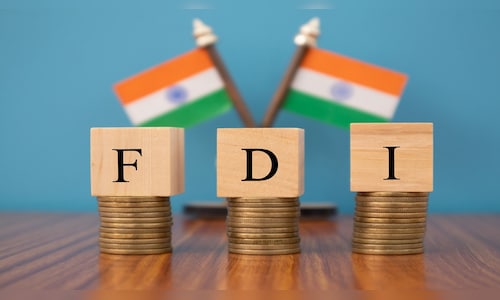[ad_1]
According to the data presented by the Food Processing Industries Ministry in Lok Sabha, the FDI in the food processing sector stood at ₹5,290.27 crore in 2021-22 and ₹2934.12 crore in 2020-21.
FDI was ₹6,414.67 crore in 2019-20; ₹4430.44 crore in 2018-19; ₹5,835.62 crore in 2017-18; ₹4,865.85 crore in 2016-17; and ₹3,312 crore in 2015-16 in the food processing sector.
Also Read: Foreign investors withdraw record $15 billion from China amid economic pessimism
In order to enhance foreign investment in the food processing sector, the ministry has taken various measures, including 100% FDI permitted through automatic routes for the food processing sector subject to sectoral regulations.
It has allowed 100% FDI, under the government-approval route, for trading including through e-commerce, in respect of food products manufactured or produced in India. The government has exempted all processed food items from the purview of licensing under the Industries (Development and Regulation) Act, 1951.
There is a lower GST for raw and processed products. More than 71.7% of food products under various chapter heads/sub-heads are covered in lower tax slabs of 0% and 5%. The export of processed foods declined 17% to $10,881.81 million in 2023-24 from $13,078.3 million in the preceding fiscal.
Also Read: FDI inflows decline 13% to $32 billion in Apr-Dec 2023
For the development of this sector, the ministry is implementing the Pradhan Mantri Kisan SAMPADA Yojana (PMKSY) and Production Linked Incentive Scheme for Food Processing Industry (PLISFPI) and Prime Minister Formalization of Micro Food Processing Enterprises (PMFME) schemes. All these three schemes are demand-driven and implemented across the country.
These schemes are aimed at the creation of modern infrastructure with efficient supply chain management from farm gate to retail outlet, and to help in providing better returns to farmers, creation of employment opportunities, reducing wastage, increasing the processing level and enhancing the export of processed foods.
[ad_2]
Source link










